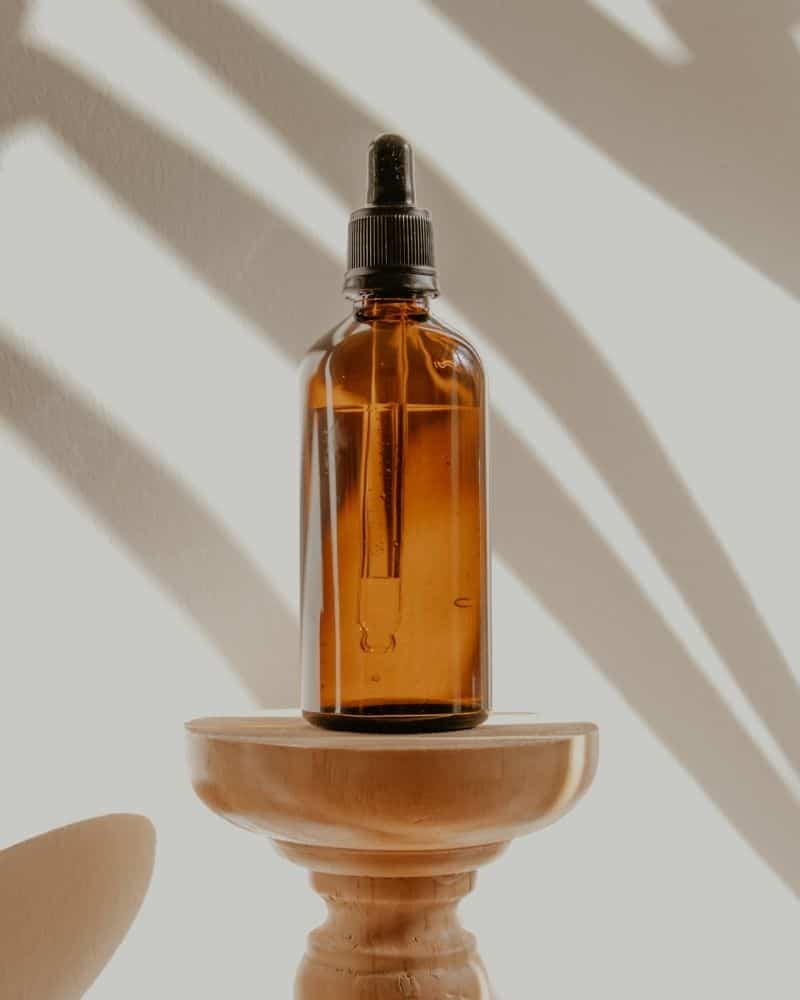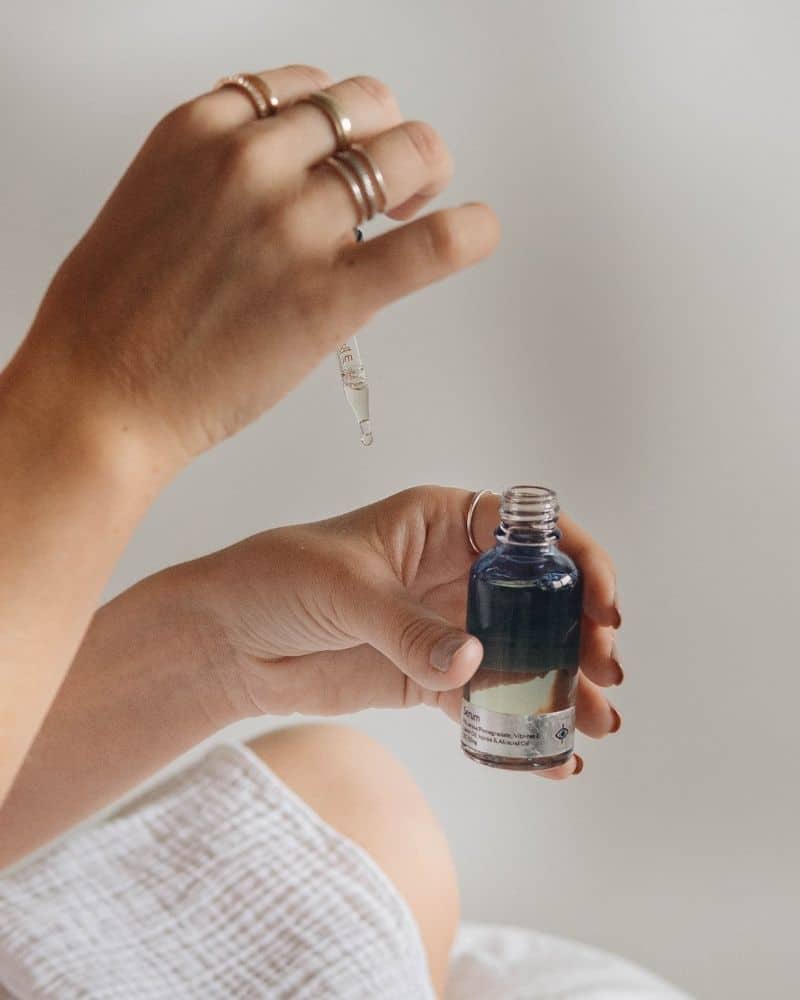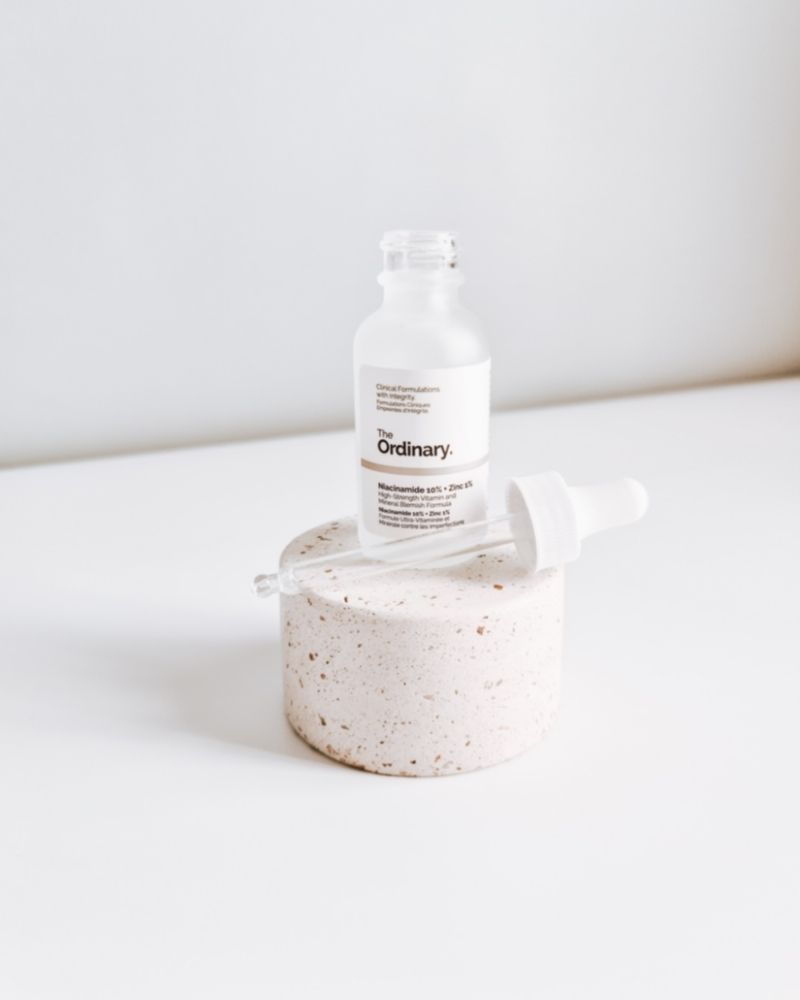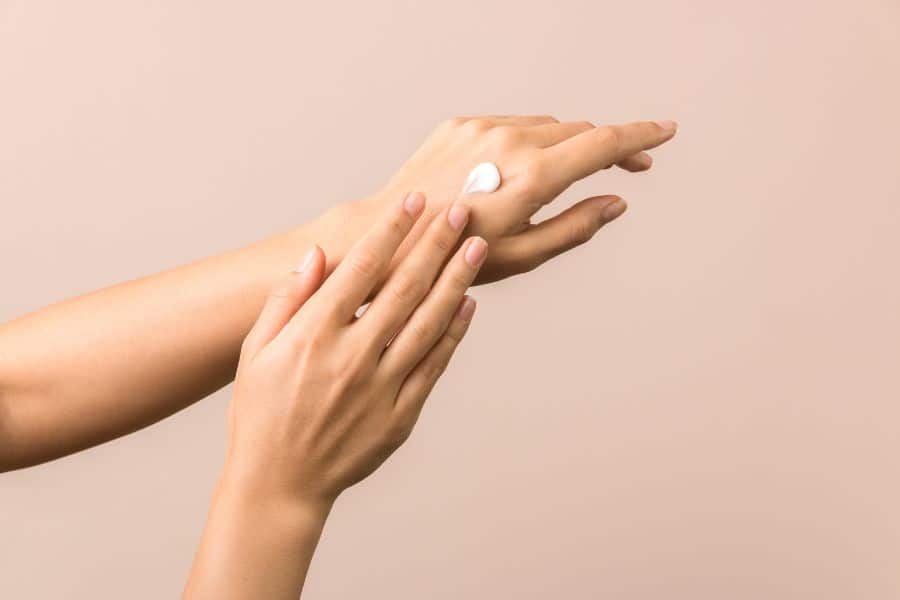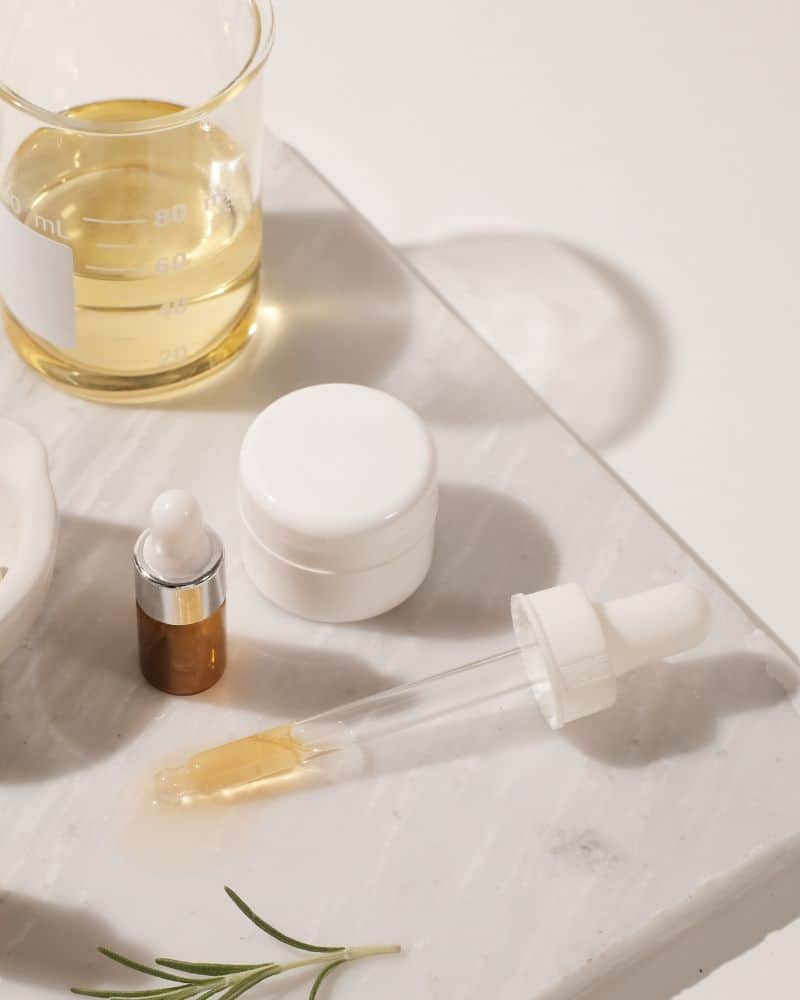Black Seed Oil For Acne: Does It Work?
This post may contain affiliate links.

Black cumin seed oil has been used for centuries in traditional medicine, with potential benefits including anti-inflammatory and antimicrobial properties, both of which can be helpful for treating acne. While modern-day treatments often include things like topical creams or antibiotics, some people may prefer to use natural alternatives like black seed oil. Let’s dive into why black seed oil for acne is so effective.
What Is Black Seed Oil
Black Seed Oil come from the seeds of the Nigella sativa plant, which is also known as Fennel Flower. This plant can be found in parts of Eastern Europe, the Middle East and Western Asia. Also known as Black Cumin Seed Oil or Black Caraway, this oil is packed with tons of amino acids, nutrients and vitamins.
Black seed oil is actually not black, as the name so implies. It’s actually a dark amber color with a unique, nutty smell.
It has been used for centuries in traditional medicine to treat a wide range of ailments from high blood pressure and headaches to skin conditions and digestive issues.
Black Cumin Seed Oil has been used for hundreds of years by Arabic and Asian cultures for its medicinal effects. It’s been proven to have an incredible array of health benefits. Studies show that Black Cumin Seed Oil has anti-diabetic, antioxidant, anti-cancer, anti-microbial, anti-inflammatory, antitussive, hepato, neuro and gastroprotective properties, just to name a few. Simply put, there’s not much this oil can’t do.
Now that we know a little bit about this incredible oil, let’s dive a little deeper into all the benefits of black seed oil for acne.
Benefits of Black Cumin Seed Oil

So you may be wondering what does black seed oil do for the skin? While we know it has some amazing properties that can help a ton of different health issues, let’s take a closer look at what it does for the skin.
- Anti-bacterial – Black Seed Oil has anti-bacterial properties that help fight acne causing bacteria on the skin to treat and prevent acne
- Anti-fungal – The anti-fungal properties of Black Seed Oil make it a great choice for athletes foot and other fungal skin conditions like fungal acne
- Antioxidant – Black Seed Oil’s antioxidant properties fight free radicals and damage from UV rays and other environmental factors to help keep skin healthy and youthful
- Antipsoriatic – This oil can actually help to treat and reduce symptoms of psoriasis thanks to its anti-inflammatory properties that help to reduce inflammation, heal skin and reduce plaques
- Anti-inflammatory – Inflammation can lead to redness and irritation, but Black Cumin Seed Oil helps reduce inflammation in the skin which can help with acne and inflammatory skin conditions like eczema or psoriasis
- Wound healing – it’s been shown that black cumin seed oil helps to stimulate wound healing and tissue regeneration, making it a great choice for wounds and even acne and acne scars
Black Seed Oil For Acne
As you can see, black cumin seed oil has a lot of amazing properties that can benefit the skin, but is black seed oil good for acne? Let’s take a closer look.
Black cumin seed oil has anti-bacterial and anti-inflammatory properties that can help to treat and prevent acne. It also helps to balance out oil production in the skin, helping to keep pores clear and prevent breakouts. Additionally, black cumin seed oil’s antioxidant properties can also protect against damage from environmental
Acne is generally caused by 3 factors: inflammation, bacteria and excess oil production. When too much oil is produced by the skin, it can lead to clogged pores, and when bacteria become trapped in pores, it can lead to inflammation as your body responds to the bacteria and infection in the pore. These things combined can lead to acne, whether it be pustules, papules or even cystic acne.
Black seed oil is derived from the Nigella sativa plant, which is native to Asia. The oil has a long history of use in traditional medicine and has been shown to have anti-inflammatory, antimicrobial, and antioxidant properties. These properties make black seed oil a promising natural treatment for acne.
The main active ingredient in black seed oil is thymoquinone, which has antibiotic and anti-inflammatory properties, which makes it ideal for treating acne.
A recent study found that a hydrogel black seed oil significantly reduced acne vulgaris lesions after 8 weeks of use, including comedones, pustules and papules, compared to the placebo group. This means that black cumin seed oil can kill acne-causing bacteria to help treat active acne and prevent new acne from forming.
Additionally, black seed oil is an incredible anti-inflammatory, which can help to reduce inflammation and redness in the skin from acne. Acne is often associated with inflammation, redness, and swelling, especially inflammatory acne like pustules or cystic acne. Black seed oil’s anti-inflammatory properties may help reduce the swelling associated with acne. Additionally, black seed oil’s antimicrobial properties may help kill the bacteria, which can help to clear up pimples that can be painful.
Does Black Seed Oil Clog Pores?

While most people with oily or acne-prone skin may shy away from using oils on their skin, facial oils can actually help balance out oil production in the skin and reduce excess shine and oil.
But before you go slathering oil on your face, is black cumin seed oil comedogenic?
Thankfully, Black Seed Oil is rated a 2 on the comedogenic scale, which means that it is unlikely to clog pores.
It’s also rich in Linoleic Acid, which can help to treat acne and clogged pores.
Of course, it’s important to keep in mind that everyone’s skin is different, and what may work for some may not work for others. If you have oily or acne-prone skin and want to try black seed oil, it’s best to start with a small patch test to make sure that it works well with your skin.
While many people that suffer from acne are reluctant to use oils on their skin, some oils can be great for acne and can even help to treat and prevent acne. So does black seed oil cause acne? Black seed oil can actually be a great natural remedy for acne. Its anti-inflammatory, antimicrobial and antioxidant properties make it an excellent choice for treating and preventing acne. It is also unlikely to clog pores, making it a suitable option for oily or acne-prone skin types.
Related post: is Olive Oil Comedogenic?
How To Apply Black Seed Oil For Acne & Acne Scars
Now that we know all about black seed oil and acne, you’re probably dying to know how to use it in your skincare routine.
There are several ways to use oils in your skincare routine and you can pick which one suits your skin and preferences best.
- As a cleansing oil – Simply massage a small amount onto dry skin to remove makeup and dirt, then rinse off with warm water and follow with a regular cleanser to remove any residue
- As a facial oil – As the last step in your skincare routine, apply a few drops all over the face and massage in gently
- As a spot treatment – Apply a small amount directly onto active acne or acne scar to help treat inflammation, kill bacteria and fade hyperpigmentation.
- As a mask – Mix black seed oil with another ingredient like aloe vera or honey to create a soothing and clarifying mask and leave on for 15-20 minutes and wash off
Black Seed Oil For Acne Scars
Now that we know black seed oil for pimples can be effective, can it also help with acne scars?
Not only can black seed oil help with active acne, but it can also be beneficial for fading acne scars and hyperpigmentation.
Black seed oil’s antioxidant properties can help to lighten dark spots caused by post-inflammatory hyperpigmentation from acne. It’s also rich in Vitamin A which can help to speed up skin cell turnover to fade acne scarring. Vitamin A can also help to promote collagen production to improve the appearance of large pores and indented acne scars.
Black Seed Oil For Acne: FAQ’s

Can I put black seed oil on my face?
Black seed oil is perfectly safe to use on the face or body to treat acne and moisturize the skin. Since black seed oil is non-comedogenic, it’s a great choice for those with oily or acne-prone skin.
Can I leave black seed oil on my face overnight?
Yes, it’s safe to leave black seed oil on the skin overnight. In fact, that’s how to get the most benefits from the oil since it will have time to work overnight. You can use it before your moisturizer, mixed in with your moisturizer or on top of your moisturizer.
Since black cumin seed oil is so lightweight, it can even be use during the daytime.
How fast does black seed oil work for acne?
With any kind of acne treatment, it can take time to see results. Generally, you should start to see improvements within 6-8 weeks of consistent use. It’s important to be patient and not give up if you don’t see immediate results. Sometimes full results aren’t seen until 3-6 months of use.
Can you put black seed oil directly on your skin?
Yes, you can apply black seed oil directly onto the skin without diluting it. However, you can safely mix black seed oil with other oils like jojoba oil or grapeseed for added benefits.
Black Seed Oil For Acne Wrap Up
Black Seed Oil is a fantastic natural treatment for many different health and skin conditions. But does black seed oil help acne? The oil has anti-inflammatory, anti-fungal, and anti-aging properties, making it one of the most popular alternatives to chemical skincare that often damages the skin. Overall, the anti-inflammatory, antibacterial, and antioxidant properties of black cumin seed oil make it a promising natural treatment for acne and can also benefit other skin conditions such as eczema or psoriasis. Black seed oil for acne prone skin can be used as a cleanser, facial oil, spot treatment, or mask and can also help fade acne scars and hyperpigmentation.
